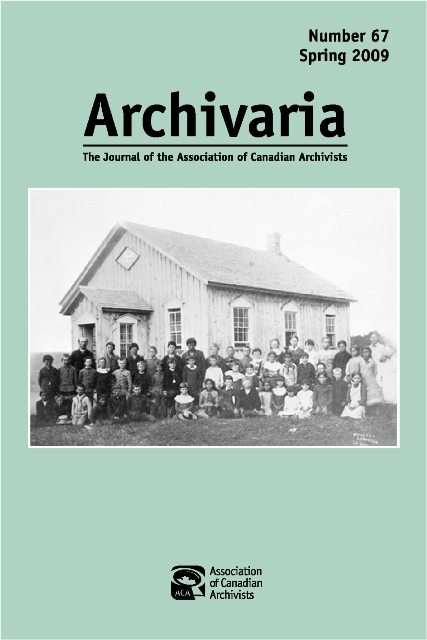Préserver l’illisible : présences de Sholem Shtern dans la vie littéraire canadienne
Abstract
Throughout the twentieth century, Canada was a land of refuge for a large number of immigrants from the four corners of the world. Once they had settled in this country and formed cultural communities, these newcomers often generated important literary and artistic trends in their own languages, and these movements reflected both concern with the survival of their identity and adaptation to new Canadian circumstances. The artistic journey of artists who hailed from these communities has gained greater significance today, as we have come to realize that their work informs us on the openness of Canadians to diversity. However, this body of work is either captured in many different languages – and quite often, not in either official language – or it makes use of lesser known artistic media. For these reasons, this corpus often eludes the large institutions mandated to constitute and to preserve Canadian archives. This text examines the case of Yiddish writer Sholem Shtern, who emigrated from Poland in 1927 at the age of twenty, and who published many collections of poetry and essays in Canada, in the Yiddish language. Shtern campaigned vigorously in Montreal and elsewhere in North America to include Yiddish writing in the life of his community, and by so doing, to promote a certain ideal of social justice. The personal archives of the author, which were deposited at the National Library of Canada (now Library and Archives Canada) shortly after his death in 1991, raise all kinds of questions relating to the preservation of the immigrant memory and to the literary lives of cultural communities who do not express themselves in either official language.
RÉSUMÉ
Le Canada a été tout au long du XXe siècle, une terre d’accueil pour un grand nombre d’immigrants venant des quatre coins du globe. Une fois installés au pays et regroupés en communautés culturelles, ces nouveaux arrivants ont souvent donné naissance, dans leur langue patrimoniale, à des courants littéraires ou artistiques importants qui reflétaient à la fois des préoccupations de survie identitaire et d’adaptation aux nouvelles circonstances canadiennes. Le cheminement des créateurs issus de ces communautés prend aujourd’hui une grande valeur du fait qu’il nous renseigne sur l’ouverture des Canadiens à la diversité. Or ce corpus disponible dans plusieurs langues, la plupart du temps nonofficielles, ou via des médias artistiques peu usités, échappe la plupart du temps aux grandes institutions chargées de constituer et de préserver les archives canadiennes. Ce texte explore le cas de l’écrivain yiddish Sholem Shtern, immigré de Pologne en 1927 à l’âge de vingt ans et qui a publié au Canada plusieurs recueils de poésie et des essais en langue yiddish. Shtern a milité très fortement à Montréal et ailleurs en Amérique pour inscrire l’écriture yiddish dans la vie de sa communauté et pour promouvoir du même coup un certain idéal de justice sociale. Déposées à la Bibliothèque nationale du Canada (aujourd’hui Bibliothèque et Archives Canada) peu après sa mort en 1991, les archives personnelles de l’auteur soulèvent toutes sortes de questions relatives à la préservation de la mémoire immigrante et à la vie littéraire des communautés culturelles de langue non-officielles.
Authors of manuscripts accepted for publication retain copyright in their work. They are required to sign the Agreement on Authors' Rights and Responsibilities that permits Archivaria to publish and disseminate the work in print and electronically. In the same agreement, authors are required to confirm that "the material submitted for publication in Archivaria, both in its paper and electronic versions, including reproductions of other works (e.g. photographs, maps, etc.) does not infringe upon any existing copyright." Authors of manuscripts accepted for publication retain copyright in their work and are able to publish their articles in institutional repositories or elsewhere as long as the piece is posted after its original appearance on archivaria.ca. Any reproduction within one year following the date of this agreement requires the permission of the General Editor.





